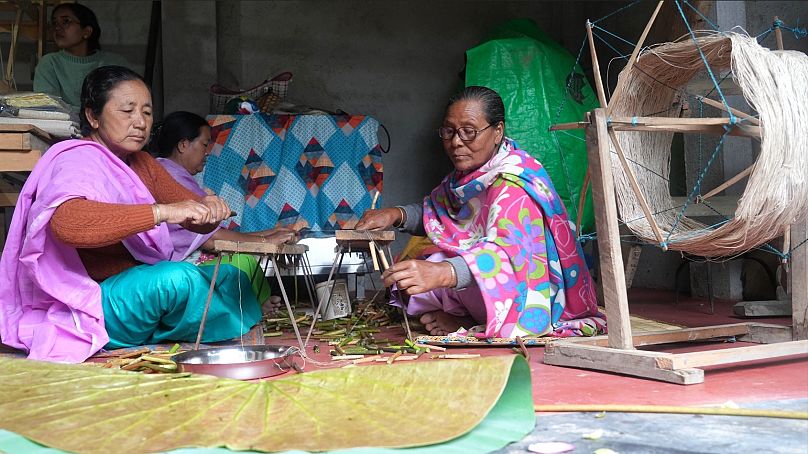Meet the eco-fashionista from India who is transforming lotus stems into sustainable garments.
In India's northeastern state of Manipur, thirty-year-old Bijiyashanti Tongbram transforms lotus flower stems into beautiful fabrics through her creative business, Sanajing Sanathambal Ltd.
"It's a new business idea in India. Our products are 100% organic," explains Bijiyashanti.
During the winter of 2017, Bijiyashanti made an intriguing observation. "I realised that only the lotus flower was being used. While the rest of the plant was being wasted," she explains.
Bijiyashanti was determined to utilise the neglected parts of the lotus plant, and her vision for lotus fibre clothing started to take shape.
The production workflow requires precision and skill because extracting the fibre from the lotus plant by hand is an intricate process that involves hours of painstaking patience.
"We pluck and collect the stems and store them in stocks. Then, we slowly extract fibre from the stem using a knife along with the help of a wooden board. Then we roll it, and it becomes a thread," Bijiyashanti explains.
Fishing is the main occupation in Manipur's Loktak Lake area. Now, with a team of 30 dedicated workers, Bijiyashanti's business gives women an alternative income, and they can make between 8,000 and 12,000 rupees monthly.
"I'm doing this to earn money for myself and to support my children and grandchildren," says Heisnam. "We invest a lot of time in it," Bijiyashanti continues.
Lotus fibre clothing is ideal for people who care about sustainability. "My customers are aware of the value of our product and its organic nature. There's no use of the machine. It's all 100% handmade," says Bijiyashanti.
Bijiyashanti has grown her innovative eco-business and expanded her product range to include scarves, shawls, and waistcoats. But she dreams of a future with more possibilities. Alongside the lotus fibre production line, Bijiyashanti wants to build a garden and promote agro-tourism to showcase the beauty of plants native to her region.













